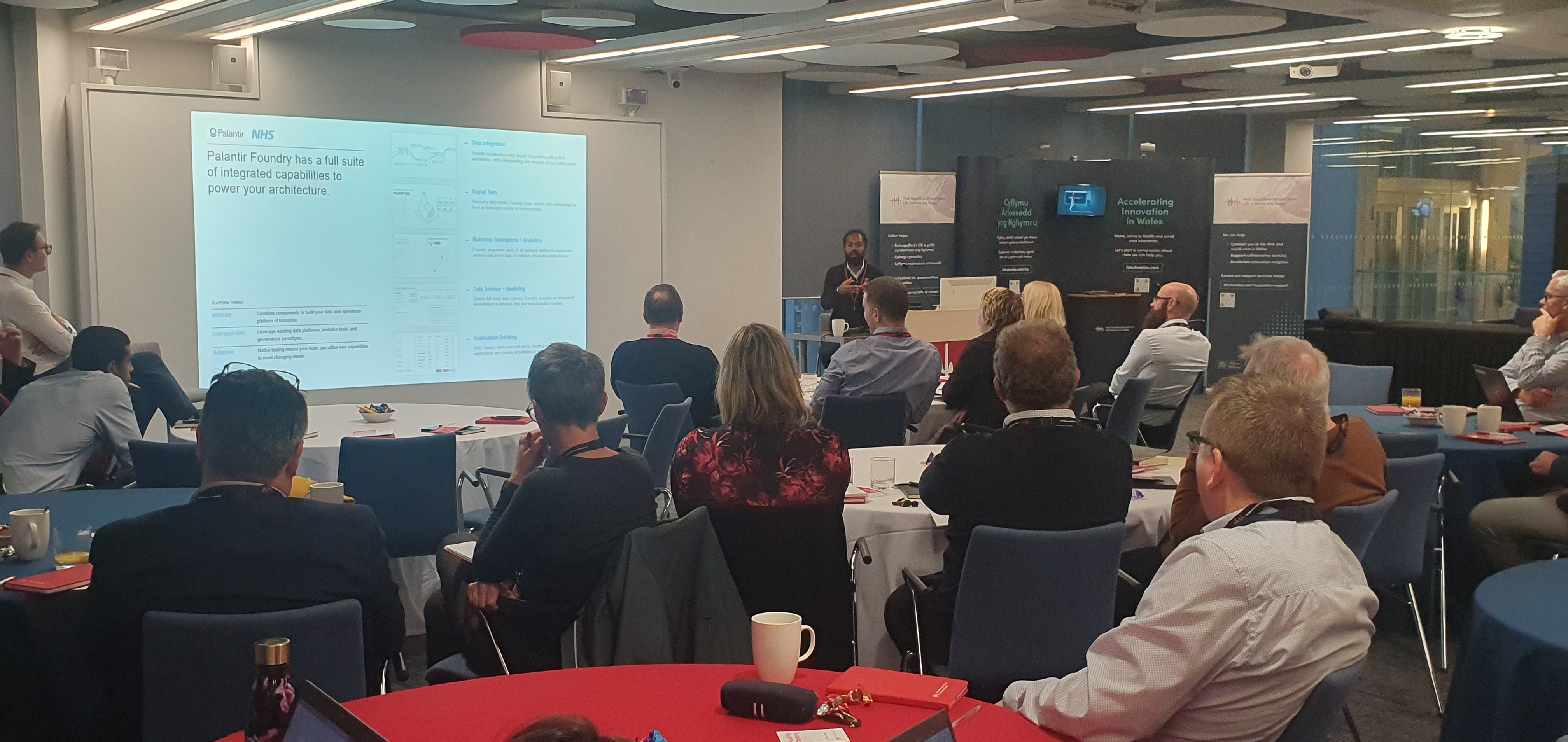Last November we hosted Palantir and Google alongside other key data industry experts at Life Sciences Hub Wales. In a series of panel discussions, we explored how data is becoming ever more crucial for transforming health and social care and improving patient outcomes.

Health and social care are continuously evolving landscapes that adapt boldly to a changing world. Over the past two years, our National Health Service has shown resilience in the face of unprecedented events. However, it is only out of great challenge that solutions arise and in the face of adversity, adaption made possible. The digital revolution of healthcare is upon us and poses an exciting opportunity to elevate health and social care services to a new level in response to the changing lives of UK citizens.
At Life Sciences Hub Wales, we know the potential that digital innovation holds, but what does this look like in practice? In November 2022, we hosted an evening of panel discussions with Google, Palantir, and other industry leaders. This led to insightful conversations about the ground-breaking developments currently taking place, and a greater insight into the potential benefits for our staff and citizens. It was an opportunity to consider the challenges ahead, to understand how data integration is integral to changing services, and how collaboration forms an essential element of digital transformation.
From numbers to narratives: how to communicate with patients about their data
Personal data security has become more robust over recent years, but questions and concerns remain about how it will be used. Building trust between sectors, and with service users, and embedding transparent practices when using data is crucial. Justin Whatling, Director of Global Health at Palantir, emphasised the need to speak clearly to patients using a language they understand and erase jargon. When patients offer their data to support improvements in healthcare and to assist in defining future policies, it is vital they know the wider purpose it will serve.
Considering data in from this perspective, we can position it as a narrative. It has the power to tell a story of what is happening, when, where, and with whom. Key trends can be identified, challenges can be anticipated, and we see the impact of solutions actioned. It is paramount that patients know this and understand where their data has made a difference on a macro scale.
Integrating data to support research
Using data at present is challenging. Currently, data is siloed across several health disciplines with the same data fed through different channels. It goes without saying that gathering data to begin research is a complex task. Sid Rajgopalan, UK Health Partnerships Lead at Palantir, stated that scientists spend 80% of their time with data pre-processing. An added layer of complication is that there is no standardised way of data gathering. This leads to unnecessary duplication of work, and valuable time lost.
Data integration is the path forward, and Palantir are working hard to gather data from across the healthcare disciplines and inputting it into one dashboard to act as ‘a single source of truth.’ Data is then presented as a seamless image of what is going on in the present moment, identifying current challenges and priorities, and allowing decisions to be made effectively and promptly to benefit patients and practitioners.
Not only does this result in faster research but it allows data to be accessed by health boards and social care services to clearly identify the best data sets for their KPIs and workflows. Chelsea and Westminster Hospital have already reaped the benefits of this with a 28% reduction to inpatient wait lists.
Data integration placing Wales on the global innovation map
Working with data is crucial if we are to quicken the transformation of our health and social care services. Data gives invaluable insight into what is happening in the moment and allows solutions to be quickly actioned. Erikjan Franssen, Head of Sales Enterprise AI at Google elaborated that data driven solutions have the potential to deliver meaningful outcomes on accelerated timelines. This approach introduces change incrementally and reduces the horizon for problem solving, meaning that solutions that would ordinarily take many months to reveal tangible results will now take only weeks. In some instances, outcomes can be immediately detected.
What strikes me as most exciting is how collaboration between industry, academia, and health is a natural by-product of integrating data. Together, we share knowledge and information that goes upstream to discover the core challenges and implement long-term solutions.
As digital technology continues to shape the way we access and define services, one thing remains clear – collaboration is going to form the golden key that unlocks the endless potential digital data offers our health and social care systems.
If you’re working in the digital innovation sector and would like support in the development and adoption of it into health and social care services, please contact hello@lshubwales.com to see how we can help you.

